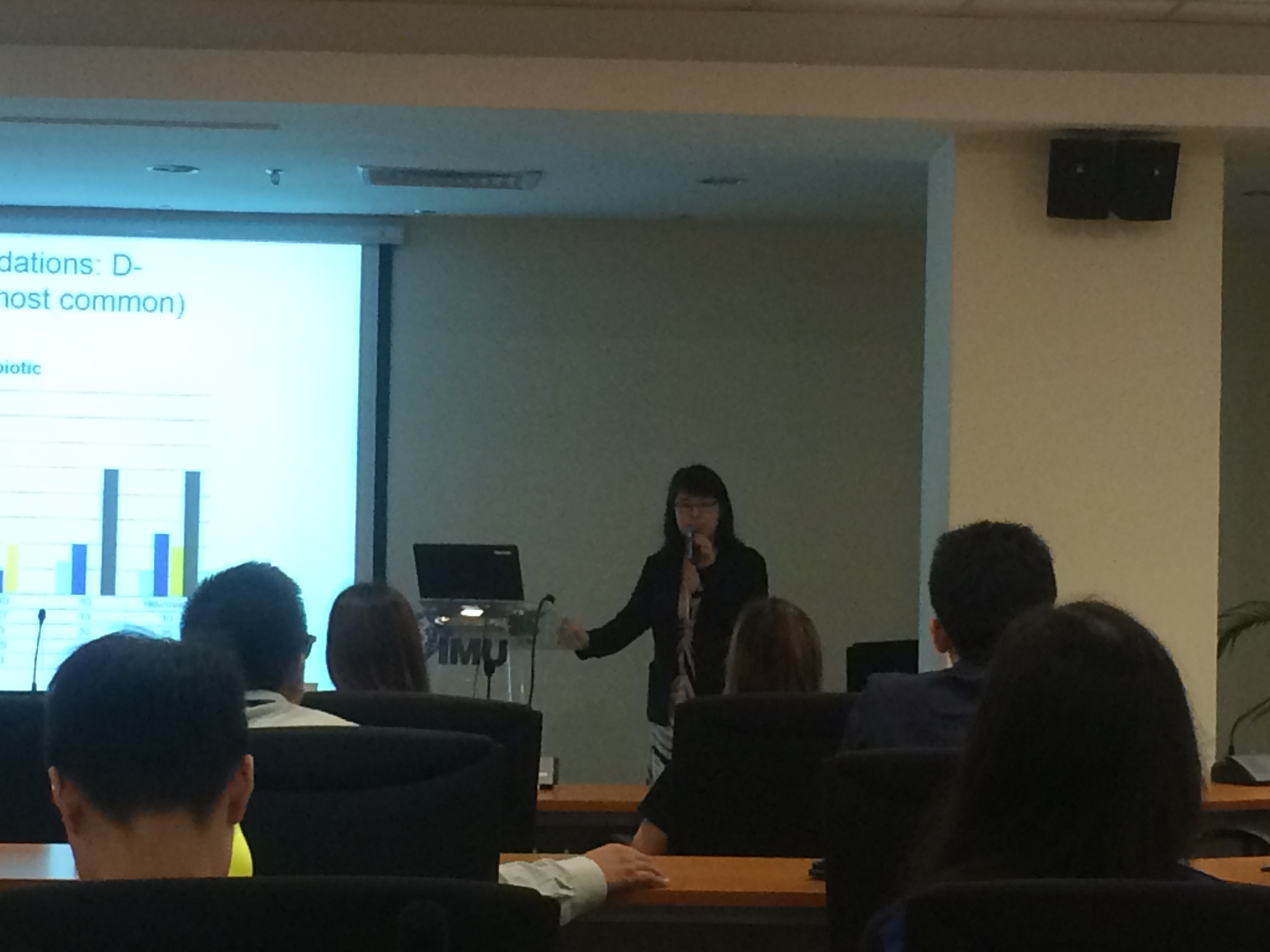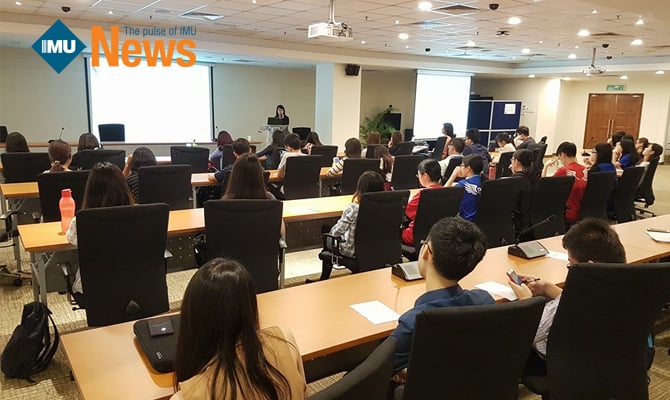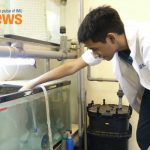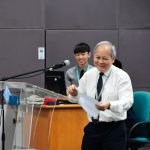16 June 2016 – The talk organised by Malaysian Pharmaceutical Society Young Pharmacist Chapter (MPS-YPC) and IMU Alumni for the month of June 2016 was entitled “Antimicrobial Stewardship (AMS) Program: The Sungai Buloh Experience”. We were privileged enough to have Ms Chong Pei Feng, the Unit Head of Clinical Pharmacy at Hospital Sungai Buloh as our speaker. Ms Chong was a graduate from the IMU – Starthclyde MPharm programme, and has served as a Total Parenteral Nutrition (TPN) pharmacist before becoming a clinical pharmacist. The talk was held at the IMU Bukit Jalil campus, and had a total of around 100 participants, of which pharmacy students formed the majority of the attendees. IMU lecturers, practicing pharmacists and postgraduate microbiology students also attended the talk. 
The talk covered various topics, including AMS achievements, activities and purpose of the AMS programme. The AMS programme is pioneered by Hospital Sungai Buloh in 2014, and has had various achievements over the years. Ms Chong introduced various AMS activities such as formulary restriction and pre-authorisation on specific antimicrobials, antimicrobial order tools, antimicrobial de-escalation, IV to PO switch, as well as the measures taken to ensure that the patients’ receive the optimal antimicrobial therapy. She also emphasised on the importance of AMS to limit the emergence of antimicrobial resistance, reducing healthcare cost by shortening the length of stay, and improving patients’ outcomes. The primary team involved in AMS consists of ID specialists, pharmacists, microbiologists and infection-control nurses.
To further explain her points, Ms Chong conducted an interactive case-studies session with the participants. The examples of real-life scenarios helped them understand how the AMS concepts are applied, and also highlighted certain learning points, such as the importance of history taking to ensure that the appropriate antimicrobial is used while non-infectious causes of fever such as the DRESS Syndrome, does not necessitate antimicrobial use. The participants actively participated during the session, asking questions based on the case scenarios given and their personal experiences encountered during their practice as a pharmacist. The talk ended with the presentation of a certificate of appreciation to Ms Chong from Dr Mai Chun Wai, Deputy Chairperson of MPS-YPC.
This alumni talk has been a great experience for the participants to know and learn about something new. Most of them found the case studies really interesting and helpful as it gave them a better idea of the contents of the talk. This was especially true for Ramona, a post-graduate microbiology research student who learned about how real-life infection cases are monitored and treated, the roles of microbiologists and pharmacists as well as the measures taken to control antimicrobial resistance.









